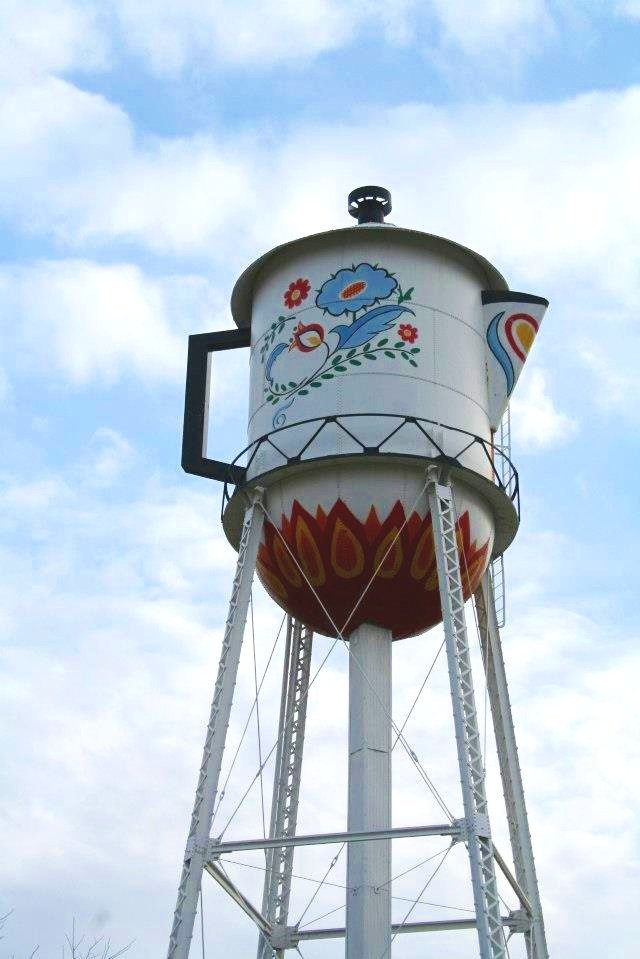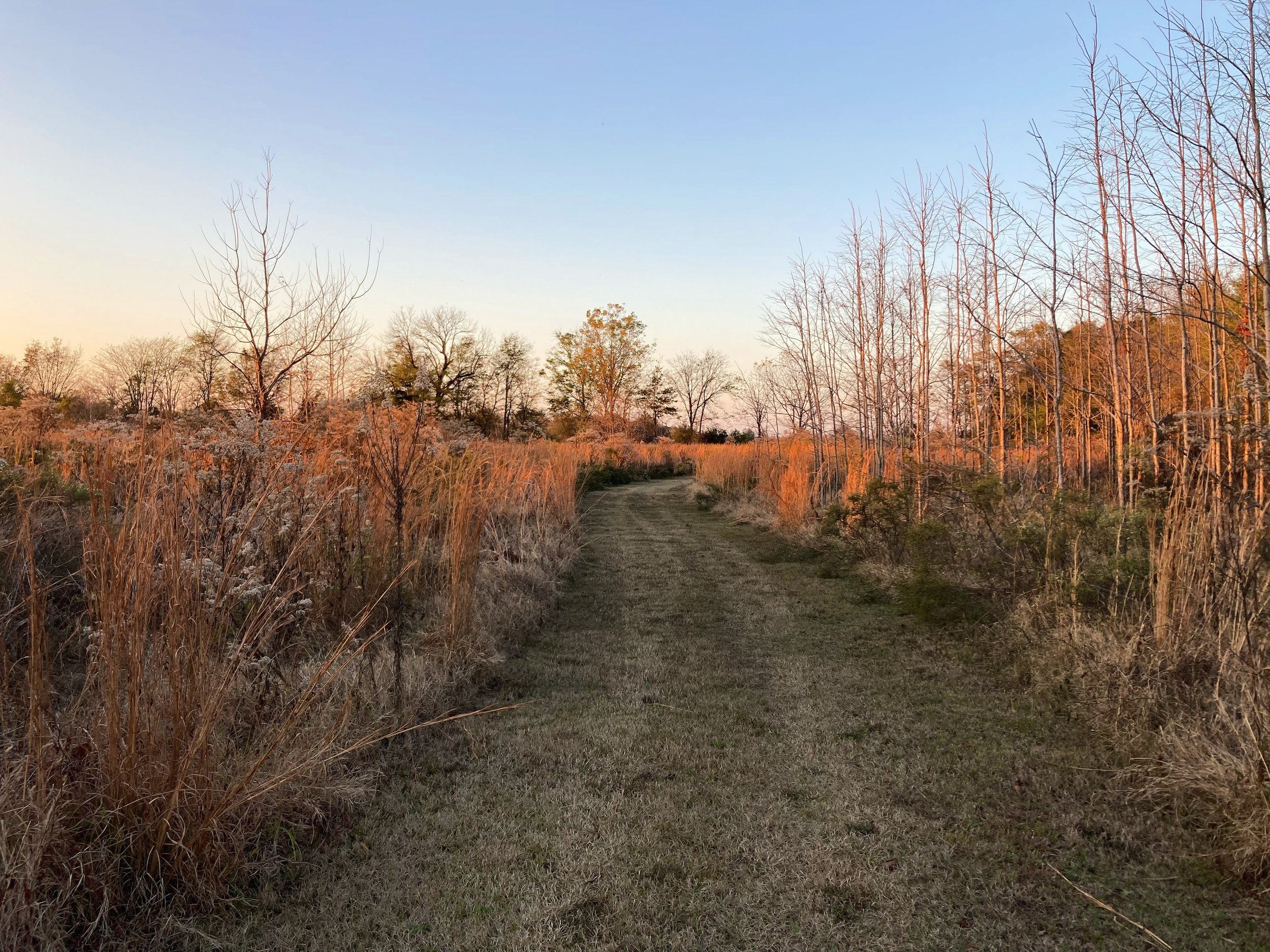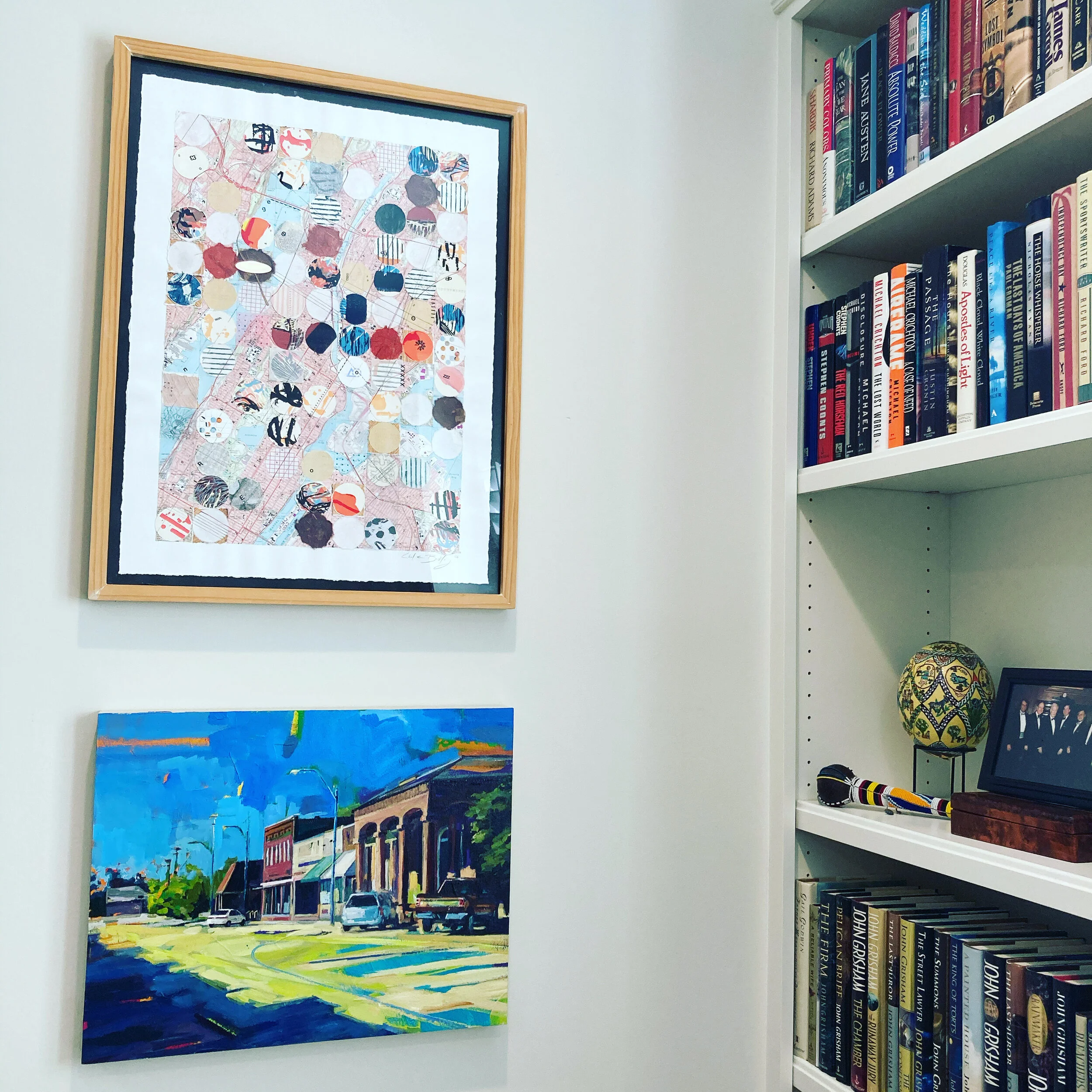Painting is hard - particularly at the end of the process. Two steps forward, nine steps back. A great deal more time staring at the easel than actively painting.
Read MoreI asked William Coppage, my old friend and forner director of the Washington County Economic Alliance, to help flesh out a fun weekend in and around Greenville. Here are some of his suggestions, along with my comments.
Read MoreWe often don’t know what we don’t know, which can be paralyzing when starting something new. This POW will prompt you to have necessary conversations with yourself, your collaborators, and your community, such as: “What are we really trying to do here? Why does it matter? What is our timeline/budget/materials? Who’s doing what by when? How do we know if this has been a successful effort?”
Read MoreLast week, I invited folks to share how to speak Iowegian.
To be completely transparent, I was pleasantly surprised with the level of response, even the arguments between was what authentically Iowan versus Minnesotan. Enjoy.
Read MoreWait. What day is it? I don't know about you, but this pops into my head everyday before New Year's Eve.
In the spirit of providing you with entertainment options while you too are wondering what day it is, I created a short list of things I enjoyed reading, watching, and listening to in 2022.
Say what?
Artist who?
In a sentence, Artist Relocation Programs attempt to lure artists to live and work in their communities, knowing full well that artists can transform places.
Read MoreIf you’re a civic leader, or part of a community organization, you may consider the benefit of inviting a local artist to be a part of what you’re doing. Or you could invite a non-local artist to live in your community for bit. We creatives thrive on transforming a set of challenges into a new possibility. Our brains are wired to see potential, to see something better.
Read MoreI heart road trips times infinity. In the summer of ‘98, nineteen-year-old me drove from Mississippi to southwest Virginia. Hopping in a car for a dozen hours has been an impulse ever since. With road trips on my brain, I tapped my online community to see what sage wisdom they had. Gather round, folks.
Read MoreGreetings! In this final installation (see what I did there) of how to hang art on your walls, we’ll be going over the nuts and bolts (ha) of the hanging part, i.e. what tools you need, measuring formulas, and best practices for showcasing your work in the best light possible (it’s just too easy).
Read MorePlacing art within a space can be intimidating, particularly if you’re a newbie. Where should it go? How do you create a meaningful visual experience in your home? Do you need all new furniture to match new work? And finally, how do you hang art, particularly if you’re allergic to power tools?
Let’s walk through some of these questions one by one.
Read MoreI am cheap. I come from a long line of proud cheapskates. My mother had us bring home Ziploc bags from our lunchboxes so she could wash and reuse them. I am incapable of throwing cardboard boxes away and I make my own damn chicken broth. I try to trick myself into believing I’m some kind of misplaced pioneer or a diehard environmentalist, but really, I am cheap. So no surprise that when I absolutely must frame something, you better believe I am going to find a “vintage” option. Here’s a list of tips that I use to find perfectly good frames to upcycle.
Read MoreLast week, I wrote a little about discerning whether you need a frame or not.
And you may have thought “I just spent a bunch of money, so it’d be great NOT to frame” or decided “I want to display my cool postcard or print collection and I do NOT want to wait until I can afford frames for all 78 of them.”
Congrats! You’re not alone! And you have lots of options!
Read MoreI once taught a class at Iowa State University on how to run a gallery and how to use the gallery to engage the local community. One of the first classes each semester was on how to install an art exhibition. This involved spreadsheets, cleaning supplies, post-it notes, levels, drills, and lots of math. I get a lot of questions from friends and family on the reg about where and how to frame and hang their art, so I thought I would share some insight.
Read MoreWelcome back! For the past two weeks, we’ve discussed why you should begin an art collection, and how to start an art collection. This final segment is a best-practices-approach to buying art: connecting with artists, supporting their practice, and purchasing their work.
Read MoreMaybe you definitely would like to support more artists and buy more art, and you have no idea where to begin. You’re in luck! Here are a couple steps to get you clear on the art and artists you’d like to support, plus a few ideas on how to find these wonderful folks.
Read MoreTrue confession: It took me 34 years to call myself an artist. I’m embarrassed to say that I associated that label with a whole mess of bad connotations that I mistakenly bought into and wanted to avoid. I also had major imposter syndrome, and being told by a former professor that I didn’t have any talent really didn’t help matters.
Read MoreIn early November 2019, I spent a lovely afternoon with Julia Rodgers Clark and Drick Rodgers on their family farm outside of Rolling Fork in Sharkey County, Mississippi. I loved on horses, rode in a cotton picker, peeked into Mont Helena, and listened to remarkable family stories and histories. At 15 people per square mile, Sharkey County is the second most rural county in Mississippi, and is the birthplace of both Muddy Waters and the teddy bear. Read on for a list of what to do, where to stay, what to eat, and where to visit.
Read MoreRecently, I co-facilitated How Can Community Arts Help People Feel Like They Belong in Your Town?, a Small City Workshop for the Iowa League of Cities.
This workshop is part of the Rural Shrink Smart initiative, a interdisciplinary team funded by the National Science Foundation that's exploring how to increase the quality of life in rural communities with shrinking populations.
Last month, I was invited to participate in the Placemaking in Small & Rural Communities Virtual Conference hosted by the amazing Arts Extension team at the University of Kentucky. (They are the OG of community arts extension and rural placemaking.)
I thought I’d share a few key points from that presentation over the next few weeks, including 4 common themes that I’ve noticed in effective and inclusive rural placemaking efforts.
Read MoreA topic that arises fairly frequently in my work is:
How can I support artists if:
I can’t afford to buy their work,
I’ve already bought their work/seen their performance
I don’t have room for their work in my home,
I can only buy so many books, see so many performances, etc, etc, etc.
Well, friend, this list is for you.
Read More


















